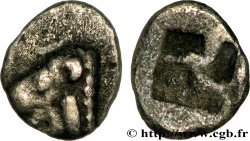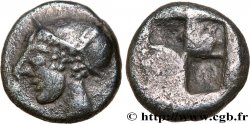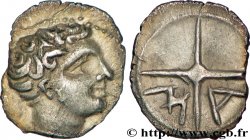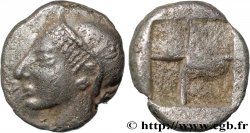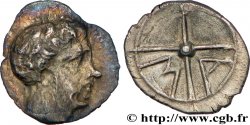Live auction - bga_340264 - MASSALIA - MARSEILLES Obole MA, tête à droite, imitation au croissant
Чтобы принять участие в торгах, вы должны войти в систему и стать подтвержденным участником аукциона. Войдите, чтобы сделать ставку. Ваш аккаунт будет подтвержден в течение 48 часов. Не ждите до закрытия торгов, чтобы зарегистрироваться.Сделав ставку на данный товар, вы вступаете в юридическое соглашение на покупку выбранного товара и нажатием кнопки «Сделать ставку» подтверждаете принятие вами условий интернет-аукционов cgb.fr.
Ставка может бить сделана только в полном эквиваленте евро. Торги закроются согласно времени, указанному в описании товара, все ставки, сделанные после закрытия торгов, учитываться не будут. Не следует откладывать предложение вашей ставки до последнего момента, так как система может не успеть обработать вашу заявку, и ваша ставка не будет принята. Более детальную информацию вы найдёте здесь: FAQ по интернет-аукционам.
Все ставки победителей подлежат комиссии 18%.
Все ставки победителей подлежат комиссии 18%.
| Оценить : | 800 € |
| Цена : | 450 € |
| Максимальная предлагаемая цена : | 470 € |
| Конец торгов : | 31 March 2015 14:55:09 |
| Участников : | 1 Участников |
Тип Obole MA, tête à droite, imitation au croissant
Дата: c. 121-82 AC.
Монетный двор / Город: Marseille (13)
Металл: silver
Диаметр: 10 mm
Ориентация осей монеты: 3 h.
Вес: 0,50 g.
Редкость: R3
Комментарии о состоянии
Flan large avec des types complets et particulièrement bien centrés. Patine grise, sur un métal lisse et brillant avec une légère irisation
Ссылки в каталоге: :
Лицевая сторона
Аверс: легенда: ANÉPIGRAPHE.
Аверс: описание: Tête stylisée à droite, une sorte de pendant d’oreille.
Обратная сторона
Реверс: легенда: M-A DANS LES 3E ET 4E CANTONS, LETTRES BOULETÉES.
Реверс: Описание: Roue à quatre rayons avec moyeu central ; un croissant dans le second canton.
Комментарий
Il semblerait que les monnaies de cette série appartiennent à la péninsule ibérique. Le prototype est clairement marseillais et la circulation aurait été assez large. Certaines oboles reprises par L. Vilaronga ont un petit animal en plus des lettres M - A et du croissant (cf. n° 43-53, p. 43-44).
Ces monnaies sont très rares et c’est la première fois que nous en proposons un exemplaire. Le n° 132 du Villaronga auquel correspond cette obole, est classé en R7.
Mêmes coins de revers que les n° 635-637 du Tome 3 sur les Drachmes ibériques et leurs divisions, de L. VIllaronga.
Ces monnaies sont très rares et c’est la première fois que nous en proposons un exemplaire. Le n° 132 du Villaronga auquel correspond cette obole, est classé en R7.
Mêmes coins de revers que les n° 635-637 du Tome 3 sur les Drachmes ibériques et leurs divisions, de L. VIllaronga.







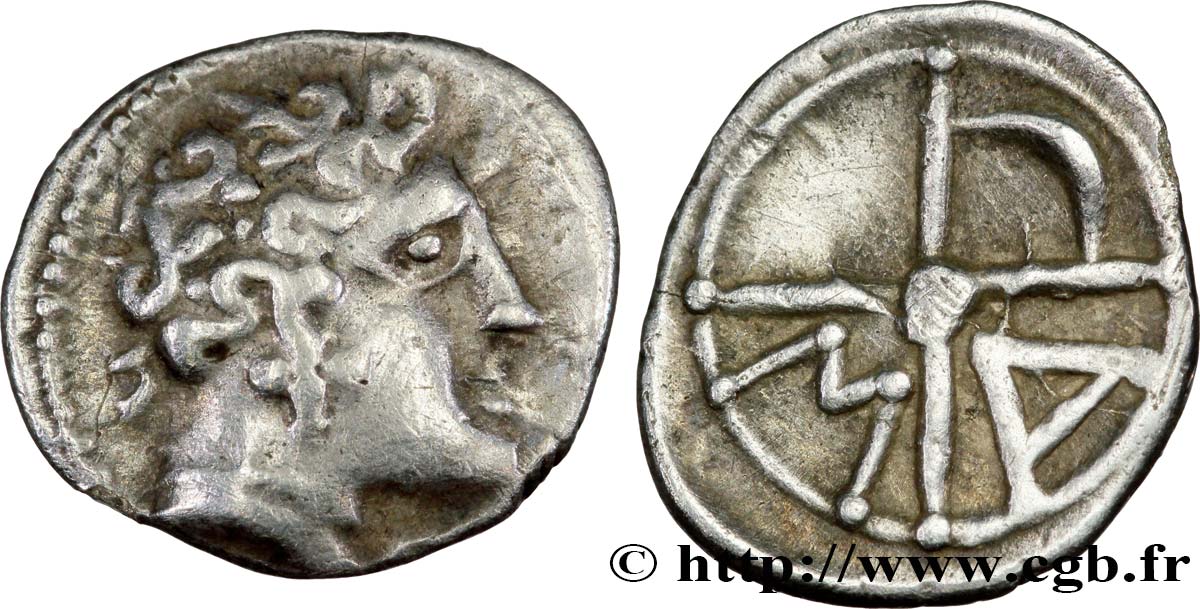
 Cообщить об ошибке
Cообщить об ошибке Распечатать страницу
Распечатать страницу Отправить мой выбор
Отправить мой выбор Задать вопрос
Задать вопрос Consign / sell
Consign / sell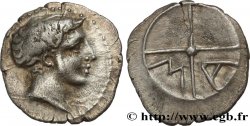
 Информация
Информация